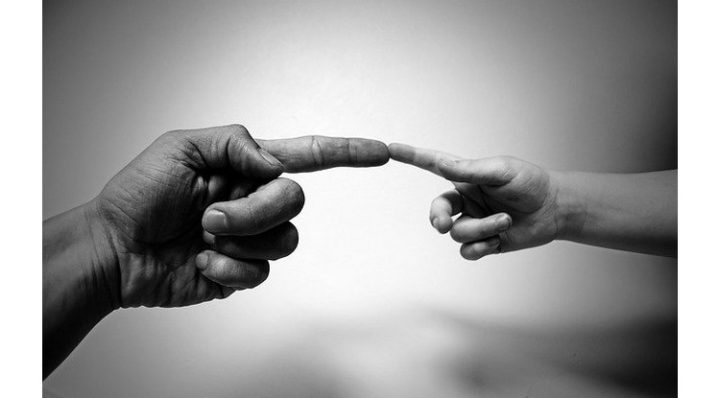(Picture from Public Domain Pictures on Pixabay- michelangelo)
This article is the second part of the author’s intervention during the virtual event organized by the Center of Humanist Studies “New Civilization” on July 23, entitled ‘Universal and Unconditional Basic Income (UBI), a suspended right‘. This is the continuation of the article published on Pressenza on August 11.
What social and political structures, and what social beliefs would collapse with the introduction of a universal basic income (UBI)? We cannot adequately assess all the consequences that would derive from it, but we have been able to ascertain some of them from the results of the pilot tests carried out and we can guess others.
About beliefs
For example, one unsustainable model would begin to collapse, and another would begin to take hold, a model in which survival would be dissociated from work.
On the other hand, the belief that wealth belongs to a few would be called into question. Wealth belongs to everyone and must therefore return to everyone, as we have often said.
Another element that would be questioned is the culture of meritocracy, which we make ours but which responds to the history of the powerful to justify the appropriation of the common goods and their position of power. Because, if it were for merit, many of the super-rich would have to find themselves in the most extreme poverty. And, it goes without saying that if we talk about community service, even less rich people would be saved.
Another belief that would fall is that work is ennobling. It is another aspect of the same story, a false myth, by the way, the backbone of the belief system that supports this society and in which we have all been formed. Of course, workers had to receive some “reward” for so much sacrifice. Work gives us dignity, they tell us. And we answer: we are worthy because we were born human beings.
Another belief that would fall is that a basic income would generate lazy people. The experience of the pilot tests shows us the opposite. It gives opportunities to those who receive it and encourages entrepreneurship of those who benefit from it.
But implementing a basic income would also have other consequences:
It would end poverty once and for all, and that is reason enough to defend it. And with it, we would advance in the redistribution of wealth and social justice… as we have already pointed out.
Some power relations of a minority over the majority would be questioned. The relationship of dependence, slavery or semi-slavery of a good part of women, minors and even employees, of the precarious workers mentioned by the British economist Guy Standing would change considerably. How many workers receive a salary that does not allow them to cover the most basic needs despite working a good number of hours a day?
Child labor would disappear and this would allow millions of girls and boys to have access to education and greater psycho-physical development, etc.
It would affect the empowerment and real advancement of women, indigenous peoples, minorities…The conditions in which an important part of LGTB people and disabled people live would improve…
If the fear of hunger, poverty, disease and death associated with them disappeared, we would feel – perhaps – able to defend other rights much more openly.
In terms of politics, we are clearly talking about a change of direction. Because we are talking about policies that focus on people, life, and not a minority, as is the case today.
On the other hand, a UBI that generates more opportunities and more equal opportunities for the entire population would undoubtedly open up a great field of transformation possibilities in all sectors.
And maybe, just maybe, a basic income could help…
to democratize the institutions and the entire system. Progress could be made in the “horizontalization” of the whole society. This could help build more inclusive and participatory social and political structures.
We would, no doubt, move towards a wiser, stronger and more peaceful society.
On the other hand, and speaking of another aspect, being able to have more time, we would have more freedom. But I don’t think it is guaranteed that this freedom, once obtained, automatically turns into freedom in all areas.
Therefore, while ensuring the material conditions for a dignified life, we must promote the freedom of ideas and beliefs, the building of networks and communities, education in values and freedom, comprehensive and lifelong education. An education that promotes all the capacities of every human being, including their spiritual development, an education that offers the profound meaning of existence…because from there, all the other aspects will be centered on service to life, to people and to the community. We will have to focus on many other aspects of social and individual life that affect our liberation, but that is another matter.
We will have to work to recover what belongs to us all.
Now, in my opinion, a basic income will not be granted easily. That is, what belongs to everyone will not be easily returned to us. We will have to work and unite the intentions in this direction to achieve it.
If the populations knew the great progress that could be achieved in different sectors and which would positively affect their health and life expectancy, if they knew that there is more than enough wealth for all humanity to live in dignified conditions…how things would change!
My friends, today, we need enlightened and mobilized populations who support courageous politicians who are willing to defend their peoples.
Translation from Italian by Ilaria Cuppone from the voluntary Pressenza translation team. We are looking for volunteers!










